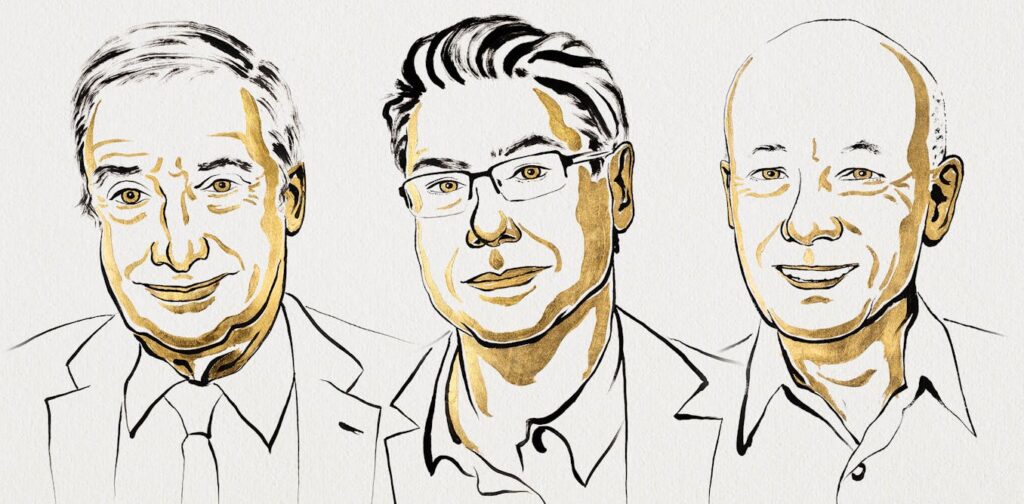
Three economists have been awarded the 2025 Nobel Memorial Prize in Economic Sciences for their groundbreaking contributions to understanding how innovation drives economic growth. The prize, valued at 11 million Swedish kronor (approximately A$1.8 million), is divided between Joel Mokyr, an economic historian at Northwestern University, and the duo of Philippe Aghion from Collège de France and INSEAD, along with Peter Howitt from Brown University. Their collective research emphasizes the vital role of innovation in fostering sustainable economic development while acknowledging the inherent cycle of success and failure within dynamic markets.
The Royal Swedish Academy of Sciences highlighted the significance of sustained economic growth, which has lifted billions out of poverty over the last 200 years. This period marks a deviation from historical trends, where stagnation was common. The Academy cautioned against complacency, noting that poor policy decisions could reverse progress. For instance, living standards in Sweden and the United Kingdom saw minimal improvement over four centuries from 1300 to 1700, underscoring the fragile nature of economic advancement.
Mokyr’s research has revealed that prior to the Industrial Revolution, innovations were largely based on trial and error rather than scientific principles. He posits that true economic growth cannot emerge in a landscape devoid of fundamental scientific understanding across various fields. Mokyr illustrates this point with the historical neglect of sterilization practices in surgery. Despite being advocated as early as the 1840s, the medical community resisted suggestions that germs could transmit diseases until the groundbreaking work of Louis Pasteur and Joseph Lister in the 1860s shifted perceptions.
The two other laureates, Aghion and Howitt, have developed models that recognize the dual nature of innovation — generating both thriving and failing firms. Their research indicates that approximately 10% of companies enter and exit the market annually in the United States. Aghion and Howitt’s pioneering work on “endogenous growth” posits that economic growth stems from internal factors rather than external influences, a concept that previously earned Paul Romer the Nobel Prize in 2018. Their studies also draw from the idea of “creative destruction,” as articulated by economist Joseph Schumpeter, highlighting the need for governments to carefully design innovation incentives.
The implications of this research extend to policy-making. Aghion and Howitt argue that if companies perceive their innovations as easily surpassed by competitors, they will be less likely to invest in new ideas. This insight is crucial for governments seeking to foster innovation while simultaneously supporting workers displaced by technological advancements.
Despite their advocacy for economic growth, the laureates expressed concern about the environmental implications of relentless expansion. In a post-announcement interview, Aghion advocated for carbon pricing to align economic development with reduced greenhouse gas emissions. He also raised alarms about emerging trade tariffs, which could hinder economic progress, and emphasized the necessity of preventing anti-competitive practices that stifle future innovation.
The Nobel Prize in Economic Sciences, formally known as the Sveriges Riksbank Prize in Economic Sciences in Memory of Alfred Nobel, was not part of the original awards established by Alfred Nobel’s will in 1895. It was first presented in 1969 and has largely been dominated by researchers affiliated with American institutions. Notably, women’s representation among laureates remains low, with only three women recognized in the prize’s history. This year, some experts suggested that professor Rachel Griffith, who collaborated with Aghion and Howitt on significant works, could have been a deserving co-recipient.
This year’s award not only acknowledges the contributions of Mokyr, Aghion, and Howitt but also underscores the continuous evolution of economic thought and the critical interplay between innovation and policy in shaping the future of global economies.







